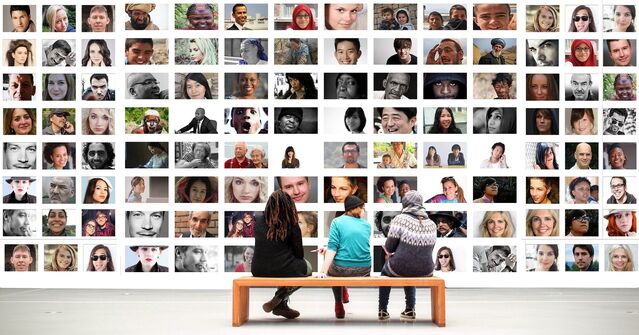Health
What It Means to "Matter"
To matter, we must add value—not just feel valued.
Posted January 4, 2022 Reviewed by Ekua Hagan
Key points
- When a person both feels valued and adds value to themselves and others, they become happier and healthier.
- Wellness and worthiness depend on fairness in relationships, at work, and in the community.
- A "me culture" focuses on one's right to feel valued. A "we culture" balances one's rights with a responsibility to feel valued and add value.
Following many trials and tribulations, including a lost love, a broken heart, and a dangerous journey, Jane Eyre arrived sick and penniless in a new town. There, as a teacher, she eventually found respect and appreciation from the community: “I felt I became a favourite in the neighbourhood. Whenever I went out, I heard on all sides cordial salutations, and was welcomed with friendly smiles. To live amidst general regard … is like "sitting in sunshine, calm and sweet." This is how Charlotte Bronte described her protagonist’s sense of mattering.
A few decades later, William James, the American psychologist, described the opposite experience: “If no one turned around when we entered, answered when we spoke, or minded what we did, but if every person we met ‘cut us dead,’ and acted as if we were nonexisting things, a kind of rage and impotent despair would ere long well up in us.” The pain of being ignored, unworthy of attention at all, he wrote, was sufficient to generate misery.
The Meaning of Mattering
Mattering consists of feeling valued and adding value, to ourselves and others. By feeling valued, we mean being appreciated, respected, and recognized. By adding value, we mean making a contribution and making a difference in the world.
The mattering effect refers to the positive or negative consequences of feeling like we matter or not. Feeling valued is a precondition for personal health and well-being. Adding value, or making a contribution, is a prerequisite for a meaningful life. The negative effects of not mattering, however, can be devastating.
Ostracism, exclusion, and rejection are not only painful, but they can also lead to violence and depression.
Feeling like we matter is one of the most defining features of humanity. When that feeling is present, we thrive. When it is absent, we feel ignored and helpless. Threats to mattering diminish our dignity.

Coping With Lack of Mattering
There are positive and negative ways to deal with a perceived lack of worth. Some constructive efforts include the civil rights movement and Black Lives Matter; the struggle of the LGBTQ community for equal rights; and the fight of disability rights activists, which resulted in the Americans with Disabilities Act. Some negative reactions to lack of worth entail aggression and xenophobia.
Consequences of Mattering
The experience of mattering not only promotes health and happiness; it also prevents personal devaluation, relational disconnection, disengagement from work, and disintegration of the social fabric. These four problems—the four Ds—define the crisis of our time.
Too little worth results in high rates of depression around the world. Too much worth results in unprecedented levels of narcissism. Disconnection is seen in new heights of isolation, loneliness, and relational breakdowns. Work disengagement, which is rampant around the world, costs seven trillion dollars. Declining social capital and increasing inequality point to community disintegration. Racism, the belief that an entire group of people does not really matter, is entrenched in the US and other countries.
Me vs. We Culture
The four Ds stem from a “me culture.” In that culture, people are guided by one mantra: “I have the right to feel valued so that I may be happy.” The self-centered nature of this philosophy focuses strictly on what is good for me.
But if the “me culture” is the problem, what is the solution? We need a “we culture,” a culture in which “we all have the right and responsibility to feel valued and add value, to self and others, so that we may all experience wellness and fairness.” Whereas the “me culture” is primarily individualistic, hedonistic, acquiescent, and ameliorative, the “we culture” is communitarian, purposeful, challenging, and transformative.
Our culture is obsessed with feeling valued and being happy. This infatuation with ourselves, bolstered by selfies, personal branding, and access to megaphones such as social media, is deceiving at best. The way to matter is not to turn ourselves into commodities for sale. Rather, the way to matter is to pursue meaning by adding value to self and others.
Mattering exists in the microcosm of relationships and work, but also in the macrocosm of social policies. Nations that promote economic fairness and equality achieve much better results in physical and mental health, trust, education, safety, social mobility, and life expectancy. People in countries that promote fair policies in health, education, and employment report higher levels of life satisfaction. These results are, in part, because people in these countries feel like they matter. As a society, the lesson is clear: We can achieve neither wellness, nor worthiness, without fairness.


